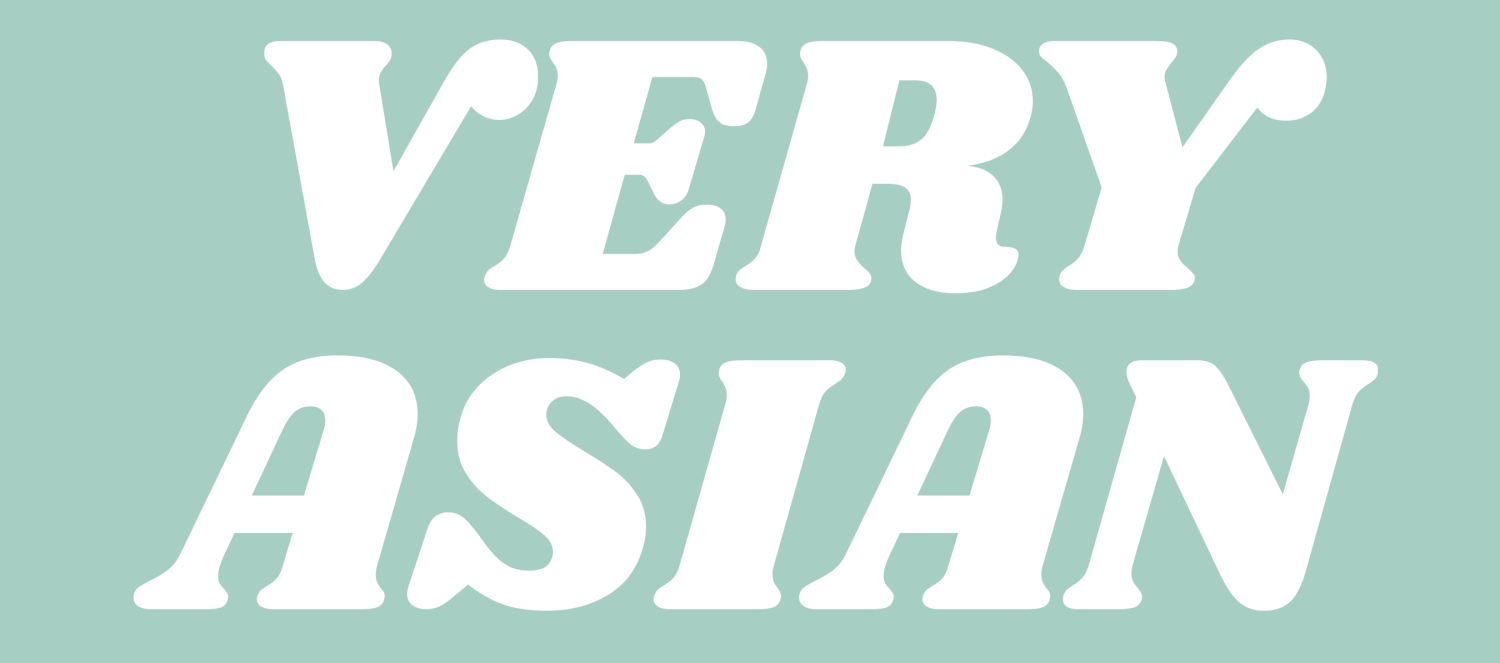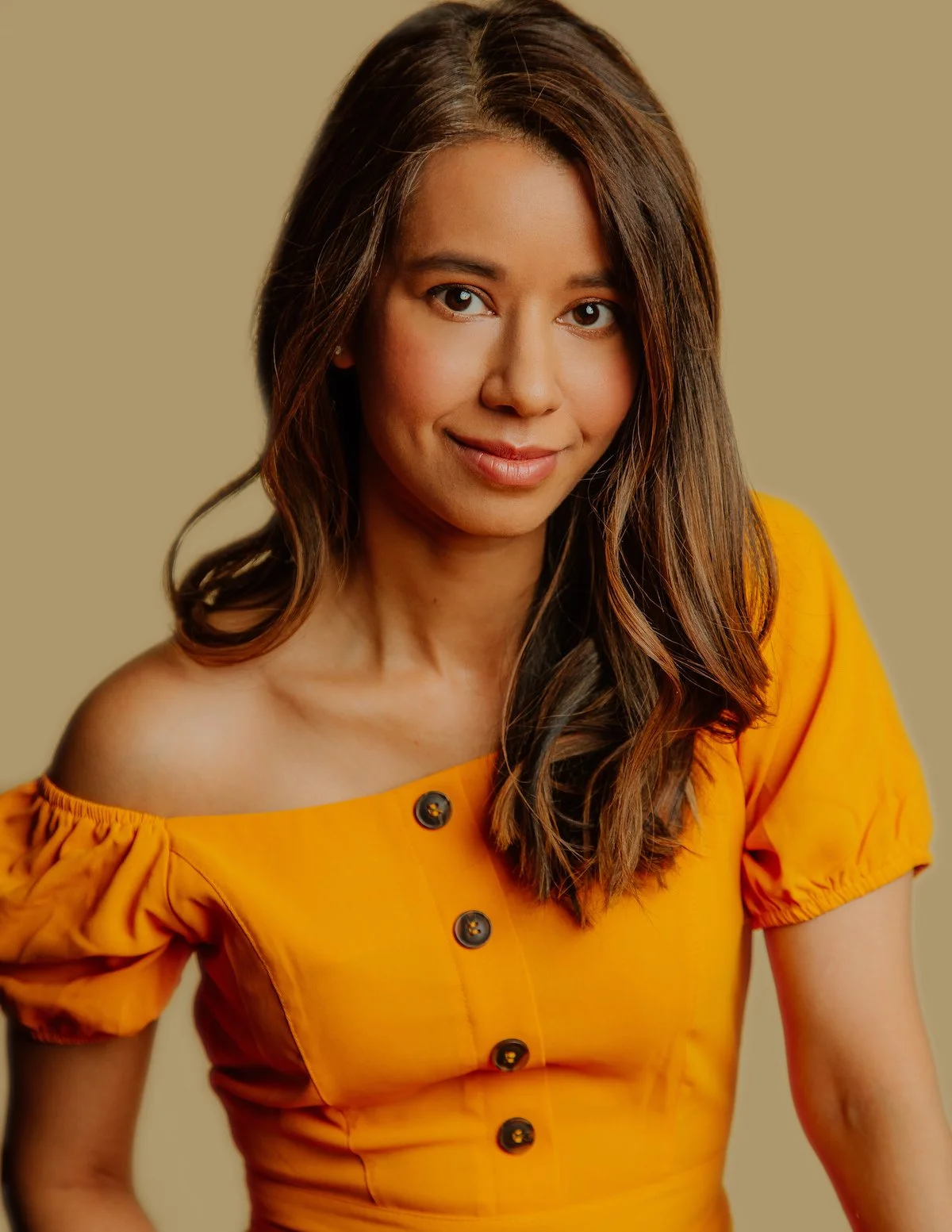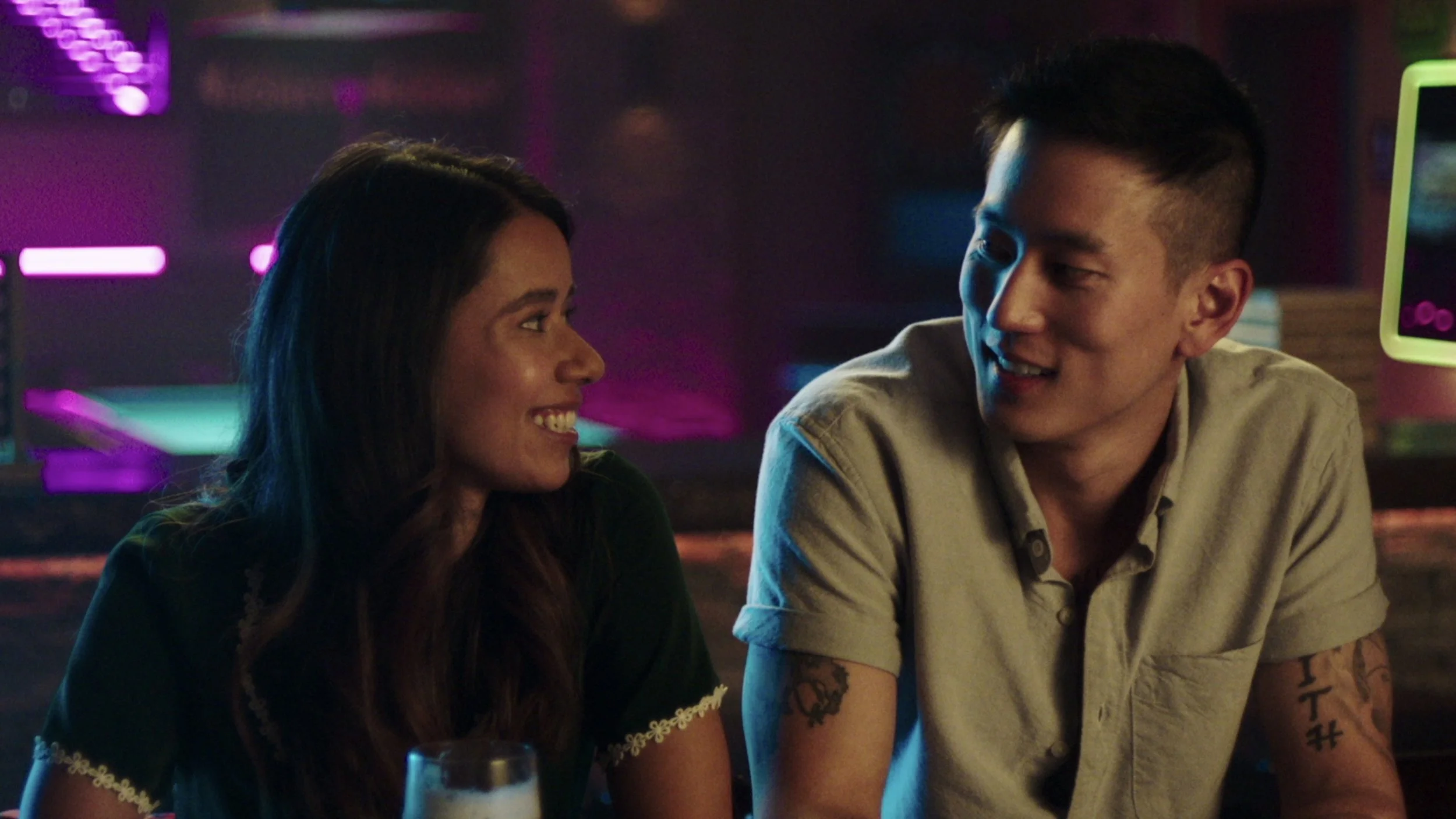In conversation with Sujata Day of “Definition Please”
In the first few minutes of my interview with Sujata Day, she immediately feels like an old friend. I get the sudden sense that she’s about to make me laugh a lot (which she did). Speaking via phone, there’s a natural buoyancy and effervescence to her voice, a welcome juxtaposition to the snow and ice in New York City that day. She’s confident, thoughtfully spoken, and energetic.
I ask Sujata about her career path and she tells me she spent a year at Accenture, a consulting firm, as “the worst employee ever.” Six to eight months after being laid off, she booked three national commercials. She then broke up with Facebook (before it was trendy) and joined Twitter, where (gasp) she and Issa Rae met. Issa ends up casting Sujata in her hit web series, Awkward Black Girl, and then in one of my favorite shows, Insecure.
Fast forward to today, Sujata is the writer, director, producer, and star of her own debut feature film Definition Please which is now streaming on Netflix. That’s right — Sujata filled at least four different roles for her hit indie film that continues to earn high praise from critics. The film recently won “Special Jury Award for Fresh Narrative Voice” at the Los Angeles Asian Pacific Film Festival and “Outstanding Directorial Debut for a Feature Film” at the South Asian Film Festival of America.
Definition Please is about Monica (Sujata Day), a former spelling bee champion who struggles to live up to her anticipated potential as an adult. When her older brother (Ritesh Rajan) returns home, the two are forced to reconnect and rebuild their relationship for the sake of their sick mother (Anna Khaja). The film successfully tackles the model minority myth and mental health, two invisible hands that the Asian community continues to reckon with. Definition Please is all at once fresh, funny, necessary, and heartbreaking.
These are edited excerpts from our conversation.
You wrote, directed, produced, and starred in your debut feature film. How did you prepare?
Being around Issa Rae, and being her friend, and watching her develop, create, and shoot Awkward Black Girl — that was the biggest film school and lesson that I ever learned about creating your own work. And recognizing that there is an audience out there that is being completely ignored by Hollywood in terms of what they’re portraying and the work they’re putting out. What Issa realized is that there were a lot of Black women that were being ignored in the media, and she decided to write her own story about a Black girl.
As I was auditioning for roles outside of Awkward Black Girl, I noticed that the roles were all very similar. They were stereotypical. They wanted me to do an accent, or they wanted me to wear a hijab, even though I’m not Muslim. Or the storyline would generally be that this character was getting an arranged marriage and has this really controlling parent that wants to steer their life in a certain direction.
At the time, I [also] met Matthew Cherry, and I was in his film called 9 Rides that went to SxSW. He also did it all — he wrote, produced, directed. He shot it on an iPhone.
Then I became friends with Justin Chon. He wrote, directed, starred in, and produced Gook.
I think being surrounded by all these creative people who are constantly putting out work, regardless of what the so-called gatekeepers of Hollywood believe should be the way to create work, it was entirely 110% inspiration for me for doing Definition Please.
Why did you want your debut feature film to spotlight your South Asian heritage?
For me, I was just really inspired by the projects that I had been auditioning for the past 10 years. It was almost a rising up against those roles, against those characters, against what we see in the media all the time of the depiction of South Asian Americans on screen. [They] never connected to me and my friends. So I was creating the lead role that I wanted to play, that I dreamed of playing. Then I surrounded that lead role with characters that I knew these actors would be really excited to play. So for someone like Ritesh Rajan who plays Sonny, and does such an amazing job, he read the script and he said, “I never get to play roles like this. This is amazing. I’m honored that you asked me.”
For someone like Anna Khaja who plays Jaya the mother, I really wanted to see a cool South Asian parent on screen. I don’t think I’d ever seen that before. That was a big inspiration for Jaya’s character. Once again, when Anna read the part and she saw that her character had such a fun arc to play, she said yes immediately. She’s played a lot of South Asian moms on screen. She’s played Priyanka Chopra’s mom on Quantico. She played Jameela Jamil’s mom on The Good Place. She actually played Ritesh’s mom on a show called Stitchers. So she was just really excited to be able to dig deep into the character and have fun with it. And that’s what was exciting for me. To really fill this film with characters that we’ve never seen before and be able to gift my friends and actors these fun roles that aren’t stereotypes.
By being a writer, with a fresh perspective, you’re able to create these roles that are more authentic. I’ve always thought Asian representation behind the camera is equally important as the talent in front of the camera.
I would go so far as to say who is behind the camera and who is writing and telling the story is more important than who is in front of the camera. If you have a person of color telling the story, they will automatically fill the story with authentic characters. I think one of the most important roles is the executive green lighting these shows and stories. The people who sit across from me when I’m pitching shows and movies to them, THEY need to be people of color. They need to understand where we’re coming from as storytellers to be able to green light the film and finance it. So that is where we need to see more of the change happening.
In the film, you tackle both the model minority myth and mental health. Why was it important for you to tackle both of these things?
I wanted to tackle both the model minority myth and mental health because I saw it first hand growing up around me. I grew up in this South Asian American community, hanging with my Indian American friends all the time, and I noticed that they felt really under pressure. No one was talking about therapy in our community. I just kept noticing that my peers were suffering from depression, or anxiety, or bipolar, or mild schizophrenia. Even when I went to college at Case Western, within the larger Asian community, I was seeing these issues on a larger scale. And it would lead to really dark circumstances. So I was really surprised that no one was talking about this. This was deemed to be shameful in our community. Parents tried to hide it. Kids tried to hide it. So that’s why it was really important for me to tackle both of these issues that went hand in hand. I’m lucky that I had very liberal parents that supported everything I did but some of my peers weren’t that lucky. Let’s say they weren’t that great at math and science and they wanted to do something more arts based, they were almost forced to do the other thing.
I feel like the model minority myth comes into play in that sense that we’re seen as this monolith in the media as doctors, scientists, and engineers when there’s a whole slew of us who aren’t in those fields. So it was important for me to show that we are not a monolith. All of these characters in Definition Please do different things, they have passions for different things. With Sonny’s character struggling with mental health, I wanted to show not just how he deals with it but also how the rest of the family handles it. I thought that was really important.
Let’s talk about the hot men in the film. What’s your take on how Asian men are portrayed in American entertainment?
Once again, I was trying to flip some stereotypes. I had seen Sixteen Candles, I had watched a couple of those movies from the 80s and 90s, and I just kept thinking to myself, “Wait, wait, wait. All of my Asian guy friends are super hot, and I don’t understand why this isn’t being celebrated on film. Even with Ritesh’s character, when he comes out in the tighty whities, yes it a serious scene, but I was like, you’re gonna be wearing tighty whities, that’s gonna be part of it. The audience wants to see that!
I’ve been friends with Tim Chiou for a really long time, and I’ve been dying to work with him. Every time I write a role for him in a show or a movie, he’s always playing the hot guy. So I was really excited to cast him as Dr. Chiou.
With Jake [Choi]’s character Richie, that was really interesting because early on in the process, when we were casting, I was looking at white guys for the role of Richie. We were gonna go the celebrity route, and we were friends with some actors who have a lot of followers and who work a lot. And then I thought about it, and I said to myself, “I want to pull back on that. I don’t wanna go that route.” I had just met Jake at the East West Players Gala in downtown Los Angeles. We had announced an award together. I just kept thinking about it and I’m like, “He’s really sexy. I feel like he would do a really good job at playing Richie.” And I think I texted him and he didn’t even need to read the script, he just said yes. That was the fastest yes that I got.
It was fun for me to watch those scenes with Monica and Richie in the bar and be really happy that I’m watching a South Asian American girl with an Asian American boy, and they’re having this great chemistry and this great romance. It was special to see that and I’m glad it’s been received so well.
What does the support of strong women like Issa Rae, Ava DuVernay (her company ARRAY acquired the film), and Mindy Kaling (serves as an Executive Producer) mean to you?
It means the world to me. This just solidifies my mission to do this for the next generation. We all have to be mentors, we all have to support each other. We all have to bring up different voices. Once you’ve made it, you’ve gotta open the door and let other people in. I’m really excited to do that.
How did your parents react to the film?
My parents have watched the film multiple times and love the movie. I don’t know how familiar you are with Indian aunties WhatsApp groups but basically, my mom and her friend groups are the mayors of Indian Pittsburgh. They are on a WhatsApp group and they have been talking about the film. They’ve been spreading the word via WhatsApp to their friends across the United States. It’s just been really adorable to watch how they’ve embraced the film. That’s been really exciting to see their support and how proud they are of me.
There are so many Asian youth that will see themselves in this film, and many will look up to you. What encouragement or words of advice would you give the younger you and other Asian kids?
Just create, just tell your own stories, they matter. What’s really exciting about the time we’re living in right now is that you can just go out there and shoot something. It doesn’t have to be as big as a feature film. It can start as small as a TikTok or Instagram video, or a YouTube series. You have no excuse to not create content because everything is at your fingertips. Your story was meant to be told.




